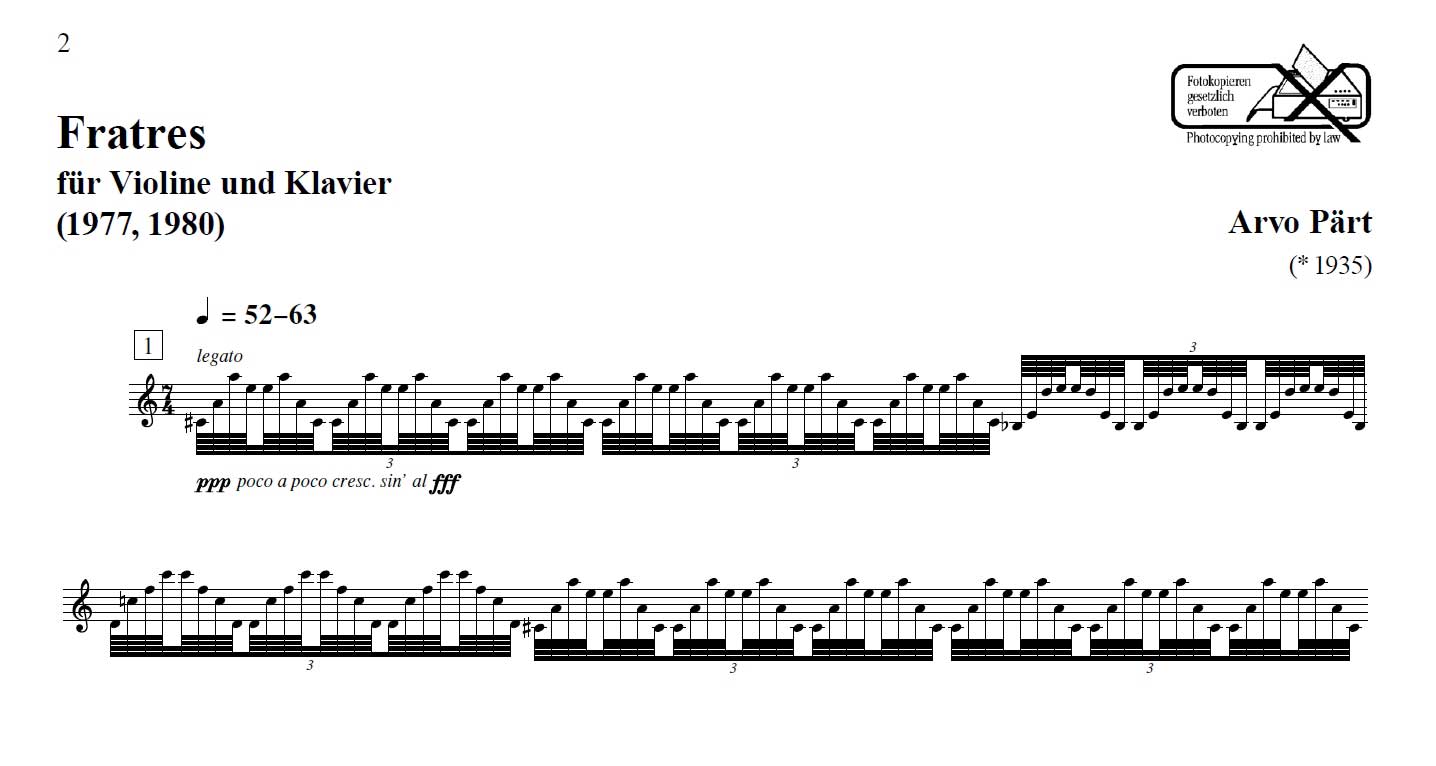Fratres (Latin for “Brothers”) was composed in 1977 and belongs to the many works (Für Alina, Cantus, Tabula rasa etc.) that were created explosively after recognising the principles of tintinnabuli music. Fratres was initially composed as three-part music without fixed instrumentation that can be performed with various instruments. The composition was premiered in 1977 by the composer’s like-minded friends from the early music group Hortus Musicus.
Fratres also exists as three-part music with added variations for the solo instrument. The first among these was written for violin and piano and was commissioned by the Salzburger Festspiele festival. It was premiered in 1980 at the festival, performed by Gidon and Ele…
Fratres (Latin for “Brothers”) was composed in 1977 and belongs to the many works (Für Alina, Cantus, Tabula rasa etc.) that were created explosively after recognising the principles of tintinnabuli music. Fratres was initially composed as three-part music without fixed instrumentation that can be performed with various instruments. The composition was premiered in 1977 by the composer’s like-minded friends from the early music group Hortus Musicus.
Fratres also exists as three-part music with added variations for the solo instrument. The first among these was written for violin and piano and was commissioned by the Salzburger Festspiele festival. It was premiered in 1980 at the festival, performed by Gidon and Elena Kremer to whom this version is dedicated.
Structurally, Fratres consists of a set of variations separated by recurring percussion motifs (in the case of instrument settings without percussion, the drum-like sound is imitated). Throughout the composition we can hear a recurrent theme that starts each time in a different octave. We can clearly recognise three voices: two melodic lines mainly moving stepwise and the central tintinnabuli voice moving on the notes of minor triad. These are accompanied throughout the entire composition by a resounding low drone. The technically demanding part of the solo instrument was added to the recurring three-part theme as a new layer, placing even more emphasis on the contrast between the changing and constant elements. Characteristically for Arvo Pärt, the apparent simplicity of the composition is governed by strict mathematical rules that determine the movement of voices, length of the melody and phrases, time signature alternations and so much more.
Both versions can be performed by various instrument combinations.


